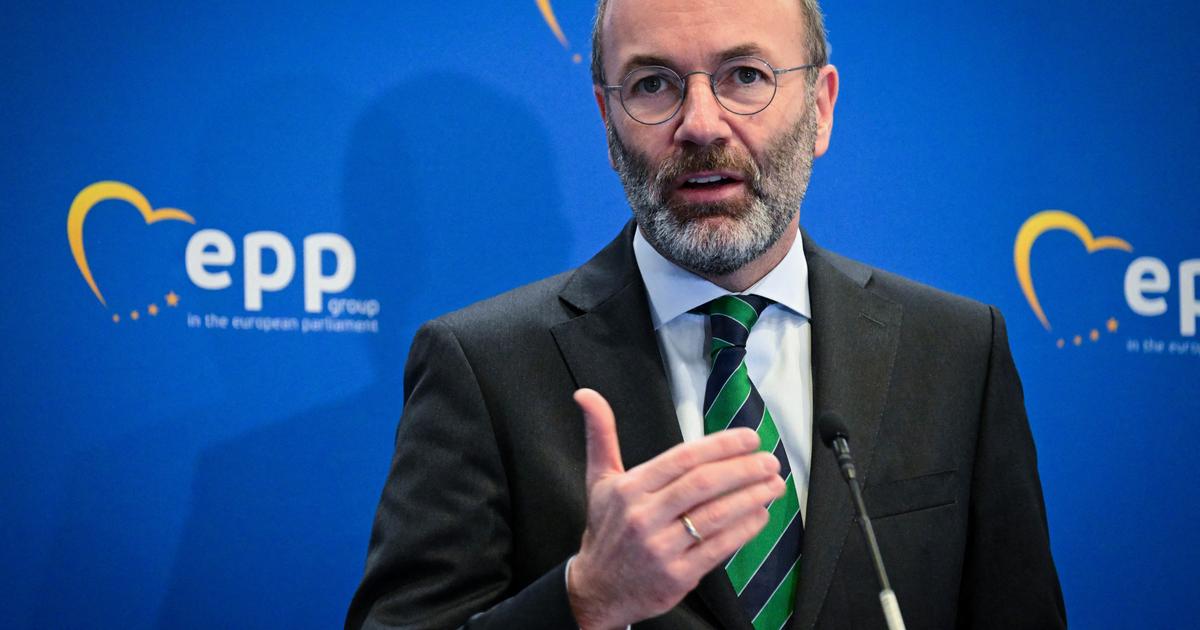Hungary's Prime Minister Viktor Orbán and Poland's strong man Jaroslaw Kaczynski as carnival figures: Open violation of EU principles
Photo: Martin Meissner / AP
SPIEGEL
: The governments in Poland and Hungary have been criticized for systematically reducing the rule of law.
Brussels should now arm itself against this.
In the future, a country's funds are to be reduced in the event of such violations.
Which proposals for a rule of law mechanism are competing?
Lucas Guttenberg
: In recent years, there have been an increasing number of cases in which some countries openly violate EU principles - and at the same time benefit significantly from EU aid.
Two years ago, the EU Commission presented a proposal on how to counteract this.
According to this, funds are to be blocked as long as a violation of the rule of law means a "risk" for the use of these funds.
SPIEGEL:
What did that mean?
What does the rule of law have to do with how a state uses Brussels aid for road construction or new gyms?
Guttenberg
: Such a "risk" - the word is important - exists, for example, in a country where the judiciary is no longer independent.
In this case, it can be assumed that investigations will not be carried out properly, for example if EU funds have been corruptly misappropriated.
In such a case, the Commission could have proposed financial sanctions to the Council of Member States.
SPIEGEL
: But this proposal is off the table.
Guttenberg
: Instead, a toothless draft of the federal government is being discussed, which it presented in its function as the current Council Presidency.
SPIEGEL:
To what extent was the idea defused?
Guttenberg
: According to the draft of the federal government, the EU Commission would have to prove that a violation of the rule of law has direct and clear effects on the use of EU funds.
Of course, this is very difficult to achieve in individual cases.
Rule of law violators can be pretty sure that they will not face any sanctions from Brussels.
"I think that's a smoke candle"
SPIEGEL:
Why is the German government so cautious?
Guttenberg
: She has recently been claiming that it is no longer legally possible.
That stands in stark contrast to the line of recent months, in which a strong mechanism of the federal government was a central concern.
It also assumes that the Commission has submitted a proposal that is illegal in Europe.
I think that's a smoke candle.
The truth is, the proposal is about preventing Hungary and Poland from vetoing corona aid.
The rule of law mechanism, the development aid and the next seven-year EU budget are ultimately a large package that everyone has to agree to.
SPIEGEL:
So Warsaw and Budapest have a long lever in their hands?
Guttenberg
: Well, not necessarily.
In addition to the member states, the European Parliament must also approve the budget.
I hope that there will be pressure from there to refine the rule of law mechanism.
And we shouldn't forget that countries like Hungary and Poland are also dependent on EU funds and that Poland in particular also benefits greatly from the corona aid.
In the end, both have a great interest in reaching an agreement on the entire EU budget package.
SPIEGEL:
You regularly hear accusations from Poland and Hungary that the EU Commission is a political body.
You don't decide objectively because the big, old EU countries like Germany and France dominate there.
"The EU Commission is the guardian of the treaties"
Guttenberg
: I think the argument is an advanced one, that the Commission is the guardian of the treaties.
Incidentally, it can already cancel funds from member countries - namely if they violate budgetary rules.
It just doesn't fit that a country is threatened with cuts if it violates the deficit criteria - but not if it curtails the independence of the courts.
SPIEGEL:
Isn't it a very crude instrument to simply cut EU funds from a country?
Guttenberg
: In the event of a violation of the rule of law, the Commission will have to choose which aid it will withhold - of course, this presupposes that the mechanism is strong enough to be used.
The point must then be not to hit those who cannot help the government violating EU principles.
SPIEGEL:
So, for example, liberal cities.
The mayors of Gdansk, Poznan and Budapest have long rebelled against the central governments.
Guttenberg
: The sanctions would have to be tailored so that they are proportionate, depending on how serious a violation of the rule of law is.
And they shouldn't exactly hit pro-European regions and forces.
SPIEGEL:
Can right-wing nationalist forces like in Poland, or corrupt power politicians like in Bulgaria, be dealt with by turning off the money.
Like Viktor Orbán in Hungary, you are agitating against the EU anyway?
Guttenberg
: Countries that are net recipients can very well be hit hard.
The real problem, however, is that there is still not really a consensus within the whole of the EU to punish such breaches of principle.
We don't just have Poland and Hungary, there are a number of countries with problems.
Let's just look at the protests in Bulgaria this summer.
The EU still lacks an effective means of effectively addressing the rule of law regressions once a country has become a member.
That will keep us busy for a long time.
Icon: The mirror














